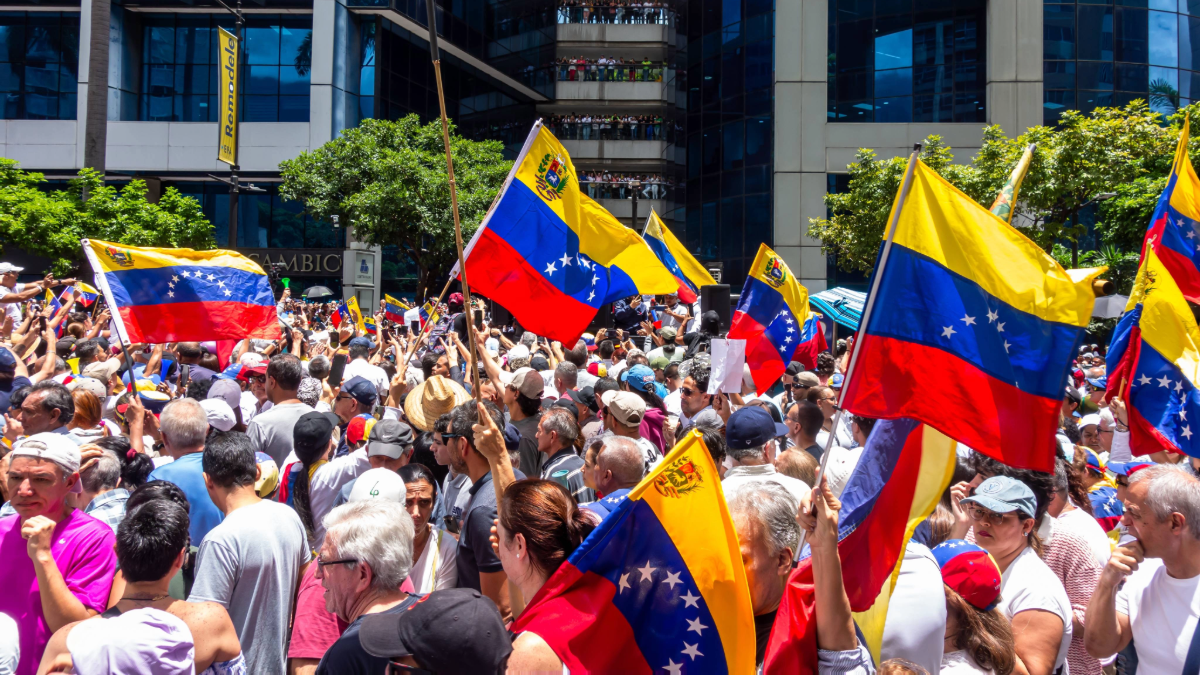Venezuela: Digital ID As a Tool of Oppression
Marianne Díaz Hernández / Sep 10, 2024Marianne Díaz Hernández is the #WhyID Campaigner at Access Now.

August 28, 2024 - Caracas, Venezuela: a demonstration called by opposition leader Maria Corina Machado a month after the country's presidential elections. Shutterstock
Digital identification systems are often sold as the future of convenience, a streamlined path to accessing rights and services. In reality, in certain cases they’ve become something far more sinister: tools of control and surveillance. Nowhere is this more evident than in Venezuela.
Prior to the early 1990s, Venezuela was considered an unusually long-standing and stable liberal democracy in Latin America, having transitioned to democracy in 1958. Now, the nonprofit Freedom House labels it ‘not free’, noting that “authorities have closed off virtually all channels for political dissent, restricting civil liberties and prosecuting perceived opponents without regard for due process.” The most recent election was marred by serious irregularities that call into question the result.
With the degradation of its political system, Venezuela has transformed into a nation that is also under digital siege. At the heart of this authoritarian overreach is the government’s digital ID system, a behemoth constructed from the interlocking pieces of the “Patria” system, the Administrative Service of Identification, Migration and Foreigners (SAIME), and the electoral system. On the surface, it promises efficiency. Beneath the veneer lies a panopticon of control.
The government insists this digital labyrinth is necessary for delivering services to the population. The reality is starkly different. Venezuela's crumbling infrastructure, plagued by frequent power cuts and internet outages, rampant poverty, and difficulty to buy or replace technological devices from cellphones to fingerprint scanners, renders the system unreliable. The very technology meant to facilitate access often becomes a barrier, exacerbating the hardships of everyday life.
This is not a coincidence. The system’s unreliability is a design feature, not a bug. It forces people into a perpetual state of dependency on the government for even the most basic necessities. By tying access to food, healthcare, and other essential services to a digital ID, the government wields immense power over people’s behavior and decisions. By minimizing investment in the country’s technological infrastructure to the point of failure, it isolates the population and keeps them from information that could help them make decisions about their lives and their future. When people enter the voting booth during an election and see that the fingerprint scanners required to cast their vote are the same devices required to access food rations and other essentials, it instills fear that a vote for the opposition will mean a loss of access to the services they need to survive. Given the track record of political suppression in the country, these fears are more than valid, but the fear alone that the system introduces is enough to undermine the possibility of a free and fair election.
But the control extends far beyond economic coercion. The digital ID system is a surveillance apparatus in disguise. Every transaction, every interaction with the government, leaves a digital footprint. In a country with no transparency or safeguards, not even a data protection law, and that has been known to acquire and use different types of sophisticated surveillance technology to spy on its population, this unchecked data collection is a recipe for disaster.
History has shown us time and again the dangers of unchecked surveillance. When governments possess such intimate knowledge of their citizens, dissent is stifled, and human rights are eroded.
At the core of the panopticon lies the idea of never knowing whether you’re being watched, and hence having to assume that you’re always being watched. For the hundreds, possibly thousands, of human rights defenders who saw their passports suddenly annulled since the election, and for the electoral witnesses, activists, and politicians who have seen their personal information doxxed at the government's request, this feeling is a painful reality.
The government's narrative of efficiency and progress is a smokescreen. The true purpose of this system is to maintain power. By controlling the flow of information and resources, the regime can manipulate public opinion, suppress opposition, and consolidate its grip on authority.
It's crucial to understand that this is not merely a technological issue. It's a human rights crisis. When a government can monitor your every move, track your spending habits, and even predict your behavior, you are no longer a free citizen—you are a controlled subject.
When technology is abused, the world cannot afford to be complacent. Allowing a system like this to continue to run unchecked will make it the blueprint for oppression everywhere else in the world: a laboratory test to prove it works, it’s effective, and it’s doable. This is why the international community must stand up and condemn the blatant human rights violations in Venezuela, and the digital infrastructure that underpins oppression.
Authors
